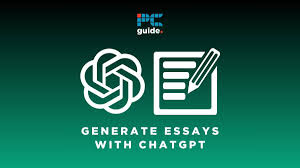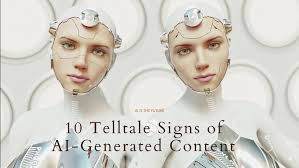
In the evolving landscape of academic writing, a new challenger has emerged that’s keeping educators and writing professionals on their toes: ChatGPT. As someone who has reviewed thousands of student papers and worked with countless writers at StudyCreek, I’ve developed a keen eye for detecting AI-generated content. Consider this your field guide to spotting essays written by our silicon-based friends rather than sleep-deprived students.
The academic world has always faced challenges to integrity—from the ancient practice of paying the smart kid to do your homework to modern-day essay mills. But ChatGPT represents something different: democratized access to instant, reasonably competent writing that can be generated with minimal effort.
According to a Stanford University study, approximately 43% of college students have used AI writing tools for assignments. This isn’t surprising given that these tools can produce a five-page essay faster than most students can decide on a snack to fuel their writing session.

The first clue often lies in what I call “suspiciously adequate” writing. ChatGPT produces content that’s technically correct but lacks the spark of genuine human thought. The writing experts at StudyCreek describe it as “academically uncanny”—like a robot trying to dance the tango, it has all the technical moves but none of the passion.
Look for:
ChatGPT has read millions of texts but understands none of them. This creates a peculiar phenomenon where the writing demonstrates breadth without depth—what the Oxford Internet Institute calls “knowledge hallucinations.”
These manifest as:
I once reviewed a paper that confidently cited “Professor Johnson’s groundbreaking 2021 study on medieval trade routes”—impressive, except no such study existed, and examining medieval trade routes through 21st-century data would require a time machine that academia has yet to invent.
One of ChatGPT’s most significant limitations is its struggle with specific context. While human students naturally incorporate class discussions, professor preferences, and current events into their writing, AI-generated essays exist in a strange vacuum.
Watch for:
As one Harvard writing instructor noted, “Human writing is in conversation with its environment. AI writing is in conversation with the internet.”
Human writers are gloriously inconsistent. Our writing energy ebbs and flows; we get excited about certain points and rush through others. ChatGPT, however, maintains an unnervingly consistent level of enthusiasm, complexity, and style throughout.
The writing coaches at StudyCreek call this the “writing marathon phenomenon”—like a runner who maintains exactly the same pace for every mile, it’s technically impressive but humanly suspect.
Perhaps the most reliable indicator is how the writing handles humor, personality, and voice. When ChatGPT attempts humor, it typically falls into one of several predictable patterns:
As my colleague at StudyCreek likes to say, “AI humor is like watching someone who learned comedy from a textbook—technically correct but missing the spontaneity that makes something genuinely funny.”

When I’m unsure about an essay’s origins, I apply what I call the “Professor Squint” test. I imagine a professor reading the paper with that characteristic squint that says, “Something doesn’t add up here.” The test considers:
To illustrate the difference, let’s examine how a student and ChatGPT might approach the same writing task:
The prompt: Analyze the symbolism in Toni Morrison’s “Beloved.”
Student excerpt: “The character of Beloved haunted me long after I finished reading—which is fitting since she’s literally a ghost. Morrison’s use of water imagery particularly stood out to me because it reminded me of my grandmother’s stories about river baptisms in her childhood church.”
ChatGPT excerpt: “Morrison’s masterful use of symbolism in ‘Beloved’ manifests primarily through the character of Beloved herself, who represents the traumatic legacy of slavery. The water imagery throughout the novel serves as a multifaceted symbol, representing both cleansing and danger, renewal and death.”
The difference? The student’s writing shows personal engagement, makes unexpected connections, and has a distinctive voice. ChatGPT’s response is technically accurate but feels assembled rather than created.
AI struggles particularly with humor that requires cultural context and personal experience. When asked to include a humorous observation about writing papers, a student might write:
“I’ve consumed so much coffee during this writing process that I’m pretty sure my blood type is now ‘dark roast.’ My roommate walked in at 3 AM to find me explaining my thesis to our houseplant, who, I might add, had some very insightful feedback.”
ChatGPT, on the other hand, might offer:
“Writing this paper was quite the adventure! It’s like they say, essays are a lot like sandwiches—they need good stuff in the middle to be satisfying. I certainly spent more time with my laptop than with actual humans this week!”
The human humor draws from specific, relatable experience and has an authentic voice. The AI humor feels generic and constructed from humor templates rather than lived experience.
At StudyCreek, we believe that technology should enhance rather than replace human thinking. Here are ethical ways students can incorporate AI tools:
As the International Center for Academic Integrity suggests, the goal should be “AI-assisted learning, not AI-replaced learning.”

As detection technology improves, so too will AI’s ability to mimic human writing. This technological arms race means that ultimately, the focus must shift from “catching cheaters” to creating assignments that make cheating irrelevant.
The writing experts at StudyCreek are already seeing professors move toward:
Despite ChatGPT’s impressive capabilities, truly effective writing remains a deeply human endeavor.The most impactful essays showcase both knowledge and intellectual processes to the professor and professional world.
StudyCreek provides academic support to students who want to develop their unique voice while handling AI-assistance challenges within ethical boundaries.For students looking to develop their authentic writing voice while navigating the complexities of academic integrity in the AI age, StudyCreek offers resources and guidance to help maintain the balance between technological assistance and personal growth.
Remember, in the end, the goal isn’t just to avoid detection—it’s to develop your unique voice and thinking processes that no AI can replicate. Although ChatGPT can generate an Mount Everest climbing essay there are particular experiences which only exist for human climbers.
Dr. Maya Rodriguez is a writing specialist with over 15 years of experience in academic writing instruction. She currently serves as a senior consultant at StudyCreek, where she helps students develop writing skills that serve them both academically and professionally.
Delivering a high-quality product at a reasonable price is not enough anymore.
That’s why we have developed 5 beneficial guarantees that will make your experience with our service enjoyable, easy, and safe.
You have to be 100% sure of the quality of your product to give a money-back guarantee. This describes us perfectly. Make sure that this guarantee is totally transparent.
Read moreEach paper is composed from scratch, according to your instructions. It is then checked by our plagiarism-detection software. There is no gap where plagiarism could squeeze in.
Read moreThanks to our free revisions, there is no way for you to be unsatisfied. We will work on your paper until you are completely happy with the result.
Read moreYour email is safe, as we store it according to international data protection rules. Your bank details are secure, as we use only reliable payment systems.
Read moreBy sending us your money, you buy the service we provide. Check out our terms and conditions if you prefer business talks to be laid out in official language.
Read more